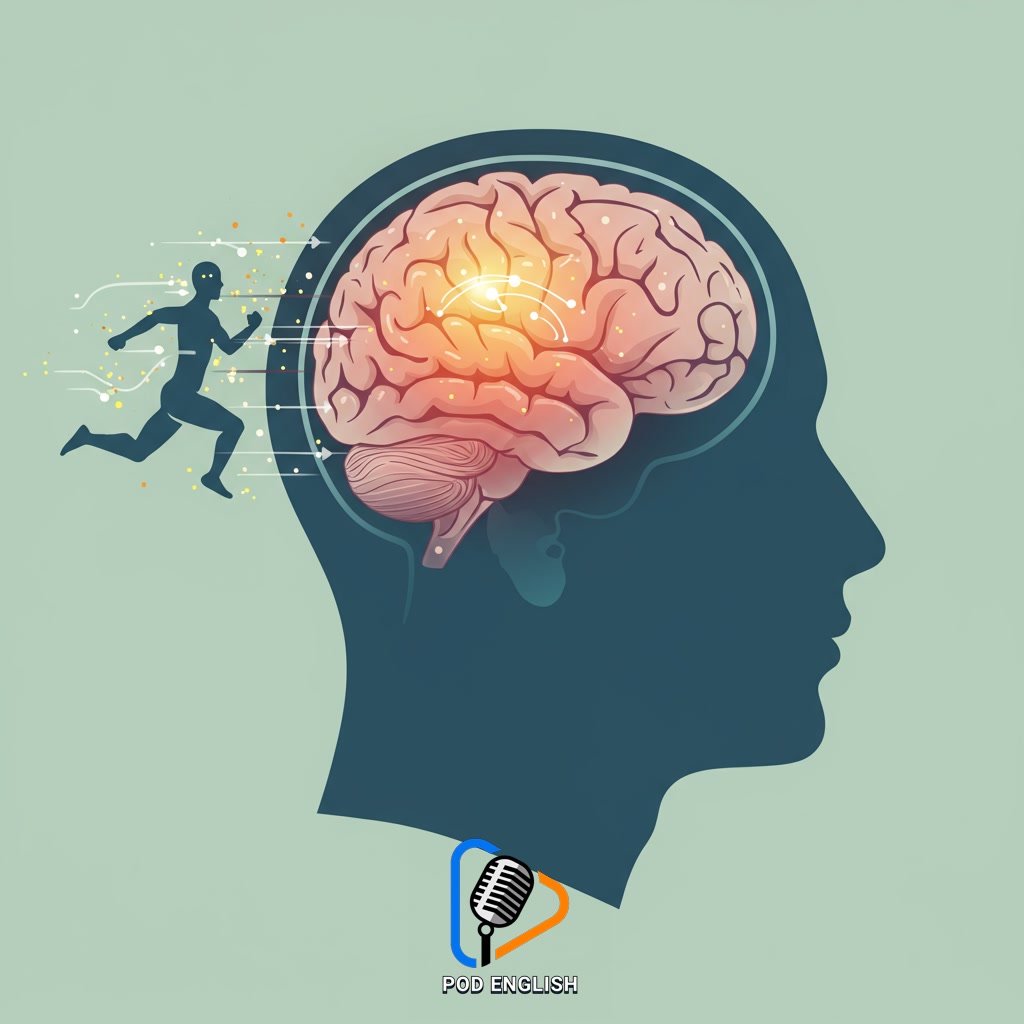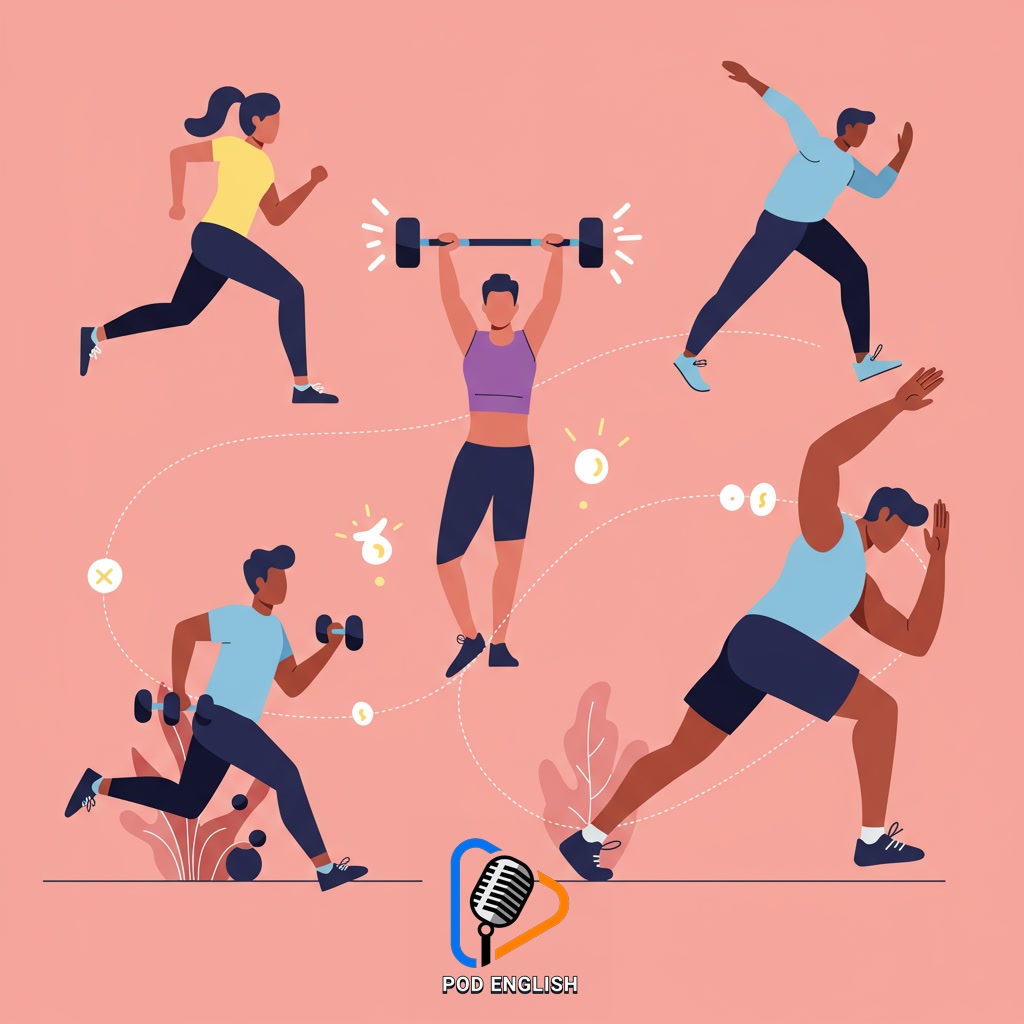Learn English
Boost Your Memory & Learn English Faster with Exercise

This content explores how physical exercise can significantly enhance memory function. Improved memory is a crucial factor in accelerating the process of learning English. Discover how incorporating regular physical activity can provide a powerful advantage for anyone focused on faster English language acquisition. It highlights the benefits of exercise for cognitive ability, directly supporting effective learning strategies.
Table of Contents
- Section 1: The Science Behind Exercise and Memory Improvement
- Section 2: How Enhanced Memory Boosts Your English Learning
- Section 3: Types of Exercise Best Suited for Cognitive Benefits
- Section 4: Integrating Exercise into Your English Learning Routine
- Section 5: Practical Tips for Combining Movement and Language Study
- Section 6: Conclusion: Exercise Your Body, Accelerate Your English Learning
Section 1: The Science Behind Exercise and Memory Improvement
Exercise has a profound impact on your brain, directly supporting memory function. When you engage in physical activity, it increases blood flow to your brain, delivering essential oxygen and nutrients. This improved circulation is particularly beneficial for the hippocampus, a key brain structure involved in forming and storing new memories. Furthermore, exercise stimulates the production of Brain-Derived Neurotrophic Factor (BDNF). BDNF acts like a potent fertilizer, promoting the growth of new brain cells (neurogenesis) and strengthening the connections between existing neurons. Stronger neural networks allow your brain to process, store, and retrieve information more efficiently. By fostering this healthier brain environment, regular exercise makes your memory more robust, which is a significant advantage when learning new English vocabulary, grammar, and concepts, helping you learn faster.

The Science Behind Exercise and Memory Improvement
Section 2: How Enhanced Memory Boosts Your English Learning
A stronger memory is incredibly useful when learning English. You can more easily remember new words and their meanings, and grammar rules stick better in your mind. When you speak or listen, you can recall phrases and sentences faster and understand connections more quickly. This improved ability to store and retrieve information, which exercise helps to strengthen, makes learning vocabulary, grammar, and pronunciation much more effective. It significantly speeds up the process of understanding spoken English and improves your fluency when communicating. Essentially, an enhanced memory acts as a powerful accelerator for acquiring English language skills.

How Enhanced Memory Boosts Your English Learning
Section 3: Types of Exercise Best Suited for Cognitive Benefits
While any physical activity is good for your health, certain types of exercise are especially beneficial for your brain and memory. Aerobic exercise, like running, swimming, cycling, or brisk walking, is often highlighted for its positive effects. These activities increase your heart rate and blood flow, which sends more oxygen and nutrients to your brain. This process helps grow new brain cells and strengthens the connections between them, making it easier to form and recall memories. Strength training and flexibility exercises like yoga also play a role by improving overall physical health, reducing stress, and boosting mood, all of which indirectly support better cognitive function and learning capabilities. Consistency is key, so finding activities you enjoy is important.

Types of Exercise Best Suited for Cognitive Benefits
Section 4: Integrating Exercise into Your English Learning Routine
Building upon the understanding that aerobic exercise significantly benefits memory, the next step is to strategically integrate physical activity into your daily English learning schedule. This doesn’t mean you need to choose between studying and working out; instead, look for ways they can complement each other. Consider listening to English language podcasts, audiobooks, or online lectures while you’re jogging, walking briskly, or cycling. The rhythmic nature of aerobic exercise can actually help process auditory information more effectively. You could also use short exercise breaks between study sessions, or even review English vocabulary flashcards during a low-intensity activity like stretching or a cool-down walk. Thinking about your exercise routine *in English* – describing your actions or surroundings mentally – is another simple way to practice. By consciously combining movement with exposure to English, you reinforce the learning process and make the most of your time, directly applying the memory benefits discussed earlier to accelerate your language acquisition journey.

Integrating Exercise into Your English Learning Routine
Section 5: Practical Tips for Combining Movement and Language Study
Building on the understanding that aerobic exercise significantly benefits memory, the next step is to strategically integrate physical activity into your daily English learning schedule. Consider listening to English podcasts, audiobooks, or online lessons while you walk, jog, or cycle. This transforms passive travel time into active listening practice. Furthermore, scheduling your most challenging study sessions, particularly those involving memorization or complex grammar, immediately after a workout can leverage the temporary boost in cognitive function. Even short bursts of exercise during study breaks, followed by quick vocabulary review, can enhance retention. These simple, practical adjustments help weave language acquisition seamlessly into an active lifestyle, optimizing both physical health and learning efficiency.

Practical Tips for Combining Movement and Language Study
Section 6: Conclusion: Exercise Your Body, Accelerate Your English Learning
In conclusion, the powerful link between physical exercise and enhanced memory function offers a significant advantage for anyone dedicated to learning English. By boosting blood flow to the brain and supporting the growth of new neurons, exercise creates an optimal environment for retaining new vocabulary, mastering complex grammar structures, and improving overall fluency. Integrating regular physical activity into your routine is not merely a health benefit; it’s a strategic investment in your cognitive abilities that directly accelerates the process of learning English. Embrace exercise as a vital component of your language acquisition journey, and experience the tangible difference it can make in boosting your memory and speeding up your progress towards fluency.

Conclusion: Exercise Your Body, Accelerate Your English Learning













